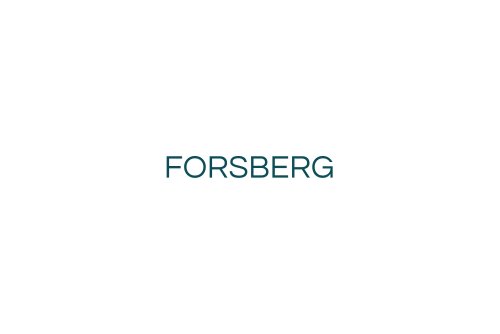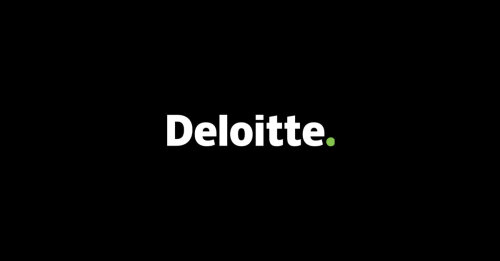Best Media, Technology and Telecoms Lawyers in Oslo
Share your needs with us, get contacted by law firms.
Free. Takes 2 min.
List of the best lawyers in Oslo, Norway
About Media, Technology and Telecoms Law in Oslo, Norway
Media, Technology, and Telecoms (MTT) law in Oslo, Norway, encompasses a wide range of legal areas that intersect with the rapid pace of technological advancement and the media landscape. Oslo, as the capital city, is a significant hub for innovation in technology and media. Consequently, legal frameworks have evolved to address issues related to digital content, data protection, intellectual property rights, network security, telecommunications infrastructure, and more. Navigating these complex legal areas requires a deep understanding of both Norwegian legislation and EU directives, as Norway is part of the European Economic Area (EEA).
Why You May Need a Lawyer
Engaging a lawyer specialized in MTT law can be crucial in several scenarios:
- Launching a tech startup or new media venture, where understanding regulations on data protection, intellectual property, and broadcasting rights is essential.
- Handling disputes regarding copyright infringements, trademarks, or patent violations.
- Navigating issues related to digital privacy, such as GDPR compliance, which is crucial for businesses handling personal data.
- Dealing with telecommunications regulations, including licensing, spectrum allocation, and infrastructure development.
- Resolving contract disputes involving software development agreements, media production contracts, or licensing deals.
Local Laws Overview
Key aspects of local laws that are particularly relevant to the MTT sector in Oslo include:
- Data Protection: Norway adheres to the GDPR, which regulates the processing of personal data and extends rights to individuals regarding data access and privacy.
- Intellectual Property: Norwegian law, in line with the EU framework, protects copyrights, trademarks, patents, and designs, ensuring that creators and inventors can safeguard their works and inventions.
- Telecommunications Act: This act governs the operations of telecom service providers, addressing issues like market access and consumer protection.
- Electronic Communications Act: Deals with the regulation of electronic communications networks and services, covering aspects such as network security and data transmission.
- Broadcasting Regulations: These regulations ensure that media services operate fairly and appropriately, covering licensing, content standards, and advertising.
Frequently Asked Questions
What is the GDPR and how does it affect my business?
The General Data Protection Regulation (GDPR) is an EU law that impacts businesses handling personal data of EU citizens. It requires stricter data privacy measures, transparency on data usage, and gives individuals more control over their personal data.
What are the consequences of not complying with data protection laws?
Businesses may face significant fines, legal action, and damage to reputation. Ensuring compliance with data protection laws is essential to avoid these issues.
How can I protect my intellectual property in Norway?
You can protect your intellectual property through registration of patents, trademarks, and copyrights with relevant Norwegian authorities. Legal counsel can guide you through the processes and help enforce rights.
What legal challenges might a tech startup face?
Legal challenges include navigating regulatory compliance, securing intellectual property rights, managing contracts and agreements, and ensuring data protection and privacy.
What should be included in a software development agreement?
This agreement should outline the scope of work, timelines, payment terms, intellectual property rights, confidentiality obligations, and dispute resolution mechanisms.
Is broadcasting over the internet subject to specific regulations?
Yes, internet broadcasting must comply with regulations concerning content standards, licensing requirements, and advertising rules as set by Norwegian authorities and in alignment with EU directives.
How do competition laws affect the MTT sector?
Competition laws prevent anti-competitive practices such as cartels and abuse of dominant market positions, thereby ensuring fair play and innovation in the MTT sector.
What is the process for resolving telecom-related disputes?
Telecom disputes can be resolved through mediation, arbitration, or litigation. Specialized legal counsel can navigate these processes and propose solutions.
How does the electronic communications law affect telecom operators?
This law requires operators to ensure network security, maintain service quality, and comply with regulations protecting users' rights and data.
What role do local and EU regulations play in the MTT industry?
Both local and EU regulations provide a framework for operations, ensuring technological advancement while protecting consumer rights and promoting competition.
Additional Resources
Consider consulting the following resources for more information and assistance:
- Norwegian Communications Authority (Nkom): Regulates telecom, postal, and broadcasting services in Norway.
- Datatilsynet: The Norwegian Data Protection Authority, responsible for supervising compliance with privacy laws.
- Patentstyret (Norwegian Industrial Property Office): Offers guidance on protecting and enforcing intellectual property rights.
- ICT Norway: An organization representing the interests of the tech and telecom industries in Norway.
Next Steps
If you need legal assistance in the MTT sector, consider the following steps:
- Identify your specific needs: Determine whether your issues relate to intellectual property, data protection, or telecommunications law.
- Research legal firms: Look for a law firm in Oslo with expertise in MTT issues and check client reviews and case studies.
- Schedule consultations: Arrange discussions with potential lawyers to understand their approach and determine if they are a good fit for your requirements.
- Discuss fees and services: Before engaging a lawyer, clarify the costs, scope of services, and any additional fees.
Seeking knowledgeable legal counsel can significantly streamline the process of addressing media, technology, and telecom legal matters in Oslo.
Lawzana helps you find the best lawyers and law firms in Oslo through a curated and pre-screened list of qualified legal professionals. Our platform offers rankings and detailed profiles of attorneys and law firms, allowing you to compare based on practice areas, including Media, Technology and Telecoms, experience, and client feedback.
Each profile includes a description of the firm's areas of practice, client reviews, team members and partners, year of establishment, spoken languages, office locations, contact information, social media presence, and any published articles or resources. Most firms on our platform speak English and are experienced in both local and international legal matters.
Get a quote from top-rated law firms in Oslo, Norway — quickly, securely, and without unnecessary hassle.
Disclaimer:
The information provided on this page is for general informational purposes only and does not constitute legal advice. While we strive to ensure the accuracy and relevance of the content, legal information may change over time, and interpretations of the law can vary. You should always consult with a qualified legal professional for advice specific to your situation.
We disclaim all liability for actions taken or not taken based on the content of this page. If you believe any information is incorrect or outdated, please contact us, and we will review and update it where appropriate.
Browse media, technology and telecoms law firms by service in Oslo, Norway
Oslo, Norway Attorneys in related practice areas.










